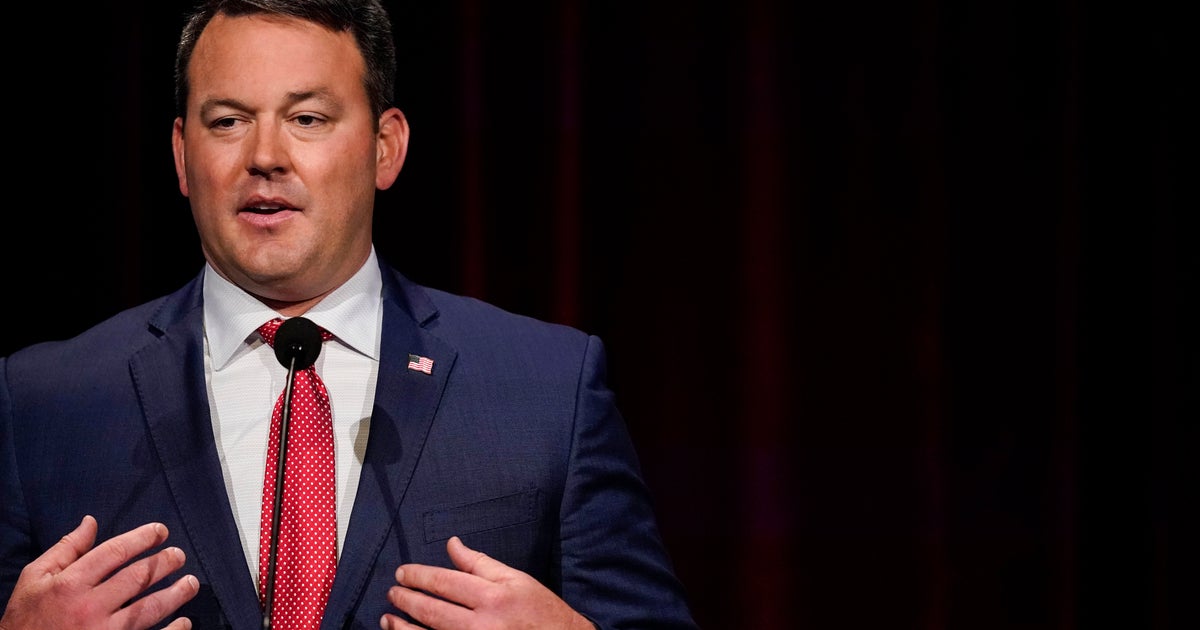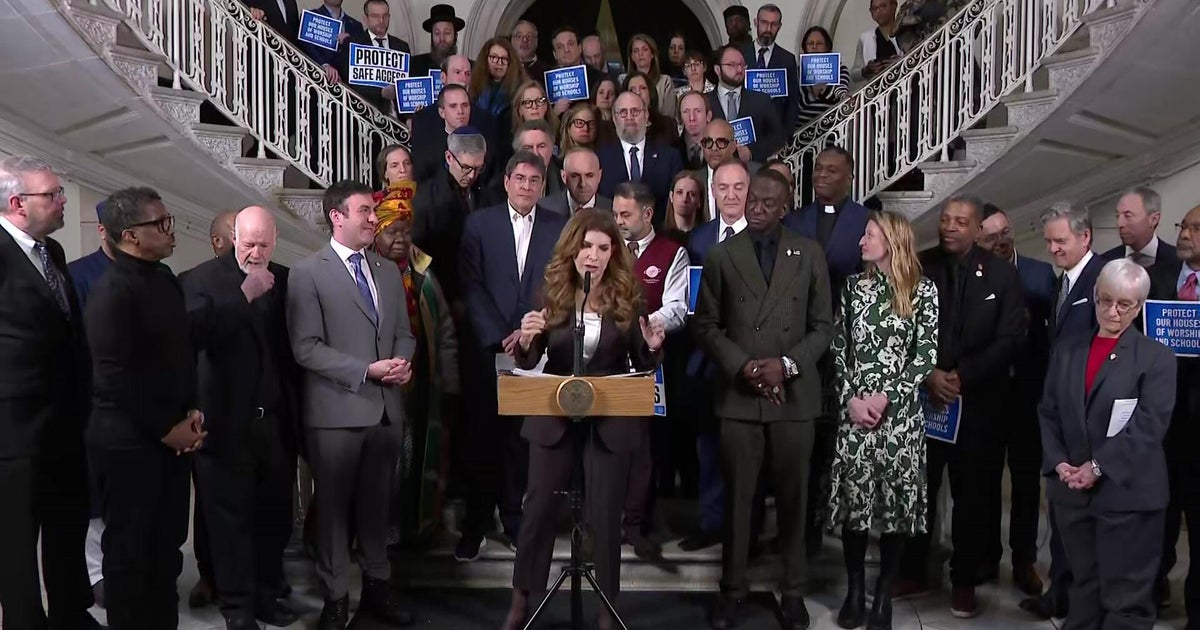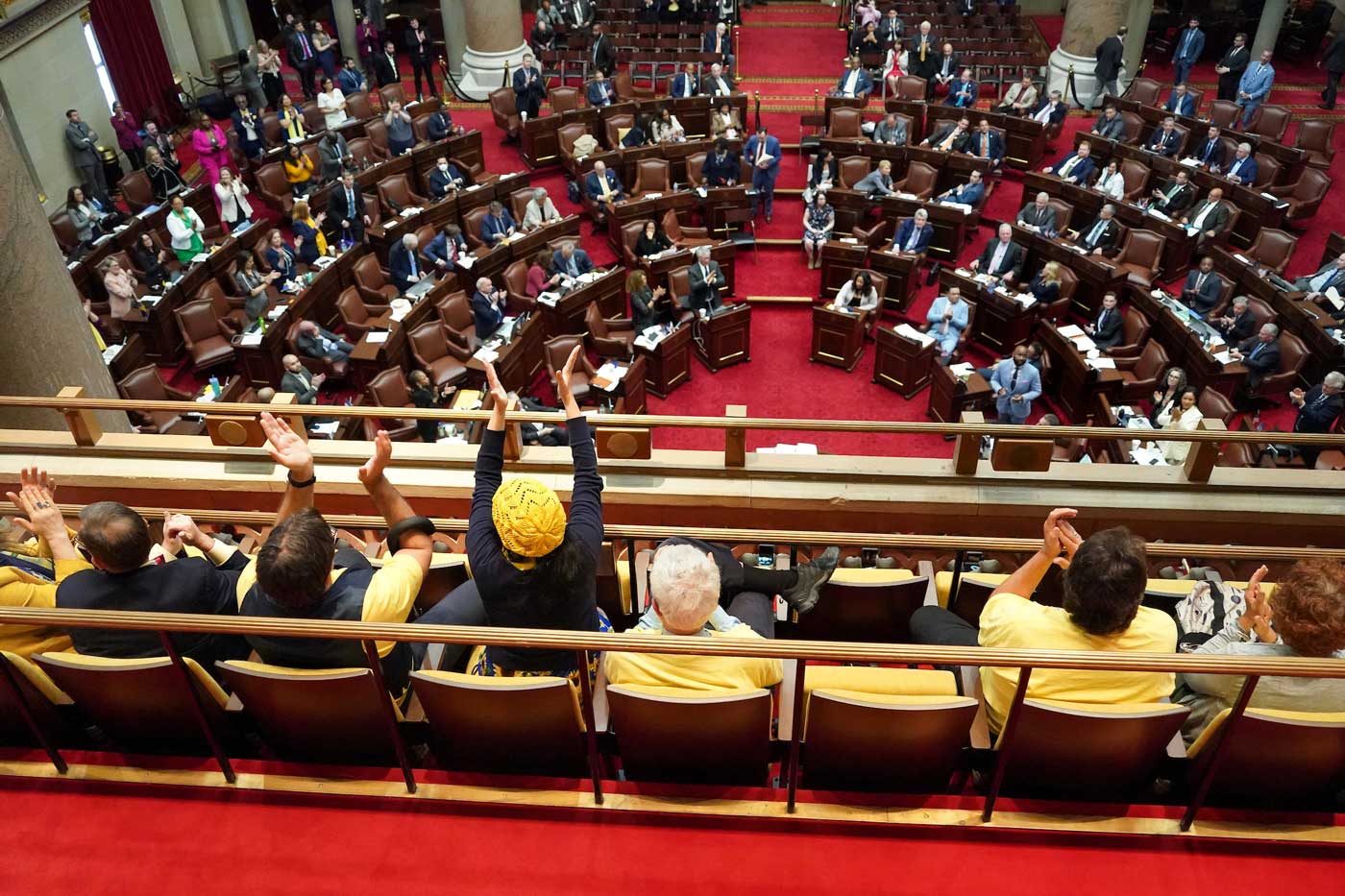Georgia's lieutenant governor proposes new hate crimes bill, igniting new concerns over passage
Georgia Lieutenant Governor Geoff Duncan unveiled a new version of a hate crimes bill in the Georgia Senate on Wednesday that would mean perpetrators of bias crimes could be charged separately with a hate crime under state law. Some leaders from the House, however, pushed for their version of the bill and noted that because the legislative session is nearly over, Duncan's plan jeopardizes the effort to pass any bill at all.
Georgia is one of four states in the country without a hate crime law, which in other states typically take the form of sentencing enhancements. Advocates and lawmakers have renewed their push to enact a hate crime law in Georgia after the killing of Ahmaud Arbery, an unarmed black man pursued by two white men and shot dead while jogging through a Brunswick neighborhood on February 23.
Gregory McMichael, 64, and his son Travis, 34, who told police they thought Arbery was a burglary suspect, were charged with Arbery's murder 74 days after his death. The killing, captured on a disturbing video, and the delay in the arrests, drew a national outcry. An investigator later testified that Travis McMichael was heard using a racial slur as Arbery lay dying.
"Obviously a lot has changed since the original house bill was drafted, and unfortunately more horrifying examples of hate crimes have continued to haunt our state and our communities," Duncan said at a press conference introducing his version of the bill Wednesday. "There is no way to ignore the sense of urgency and the desire and the immediate need for the strongest hate crimes law in the country to show up on our books here in Georgia."
The version of the bill that passed the Georgia House last year and stalled in the Senate would add additional punishment for bias-motivated crimes, rather than an additional charge. It gained bipartisan support and would mandate enhanced sentencing for defendants convicted of targeting a victim because of their "actual or perceived race, color, religion, national origins, sexual orientation, gender, mental disability, or physical disability." That would mean additional potential prison time or fines on top of sentences for the type of crime for which the defendant was convicted, such as manslaughter or murder.
But Duncan's Senate version would require bias-motivated crimes to take the form of an additional charge, "bias-motivated intimidation," in addition to charges for the underlying offense. If convicted, the hate crime charge would carry a sentence of one to five years, in addition to the sentence for the underlying crime. Citizens would be empowered to request a grand jury hearing if the local prosecutor declines to file the hate crime charge, according to Duncan's office.
The new version would add additional protected categories for victims, including those targeted because of their culture, because of their sex, because they are experiencing homelessness, or because of their status of having served in the Armed Forces, status of participating in civil rights activities, or status of exercising First Amendment rights. And, it would require a standardized reporting mechanism for hate crimes in the state.
Even small changes to the house bill would require a new vote in the state house, reports the Atlanta Journal-Constitution, where it may face new objections from conservatives. Democrats questioned the timing of the new Senate version of the bill and raised concerns that with only nine days left in the session, its passage this year could be in jeopardy.
"We are up against a legislative clock — to me that is the major issue," Representative Calvin Smyre, a Columbus Democrat, told the AJC. "The urgency of the matter is now. Every day is important."
John Porter, Duncan's chief of staff, rejected "the notion that we can't get it done," saying the latest bill is awaiting a committee hearing, along with the house version and many other bills at this point during the legislative session.
"Just passing a bill for the sake of passing it is not good enough," Porter told CBS News, but he said "nothing is off the table."
Kami Chavis, professor of law and director of the criminal justice program at Wake Forest University, cautioned against crafting a hate crimes bill with excessively broad protected categories of victims, saying it "dilutes the symbolic nature" of sending a strong message condemning hate based on religion, race or sexual orientation that has historically plagued the U.S.
"We're going to have to engage in some kind of line-drawing, and I think this doesn't draw enough lines to really get at the importance" of combating hate crimes, Chavis said.
Porter said Duncan's office wanted make the bill as inclusive as possible when it comes to including groups of victims, but will be open to removing some of the protected groups from the bill's language based on the committee's feedback.
The Georgia chapter of the NAACP tweeted that it has "many concerns" and that they were not consulted during the drafting of the new bill.
"During a time when people are literally dying, being murdered and lynched every single day, it is a shame knowing [Duncan] nor anyone from his office ever reached out to ask for our input," the group said on Twitter.
Porter said the office has been in touch with the NAACP and hopes to have their input in the future.
While states are the primary prosecutors of hate crimes, the federal government also has the authority to bring charges under the Matthew Shepard and James Byrd Jr. Hate Crimes Prevention Act. The Department of Justice can act as a "backstop" to prosecute hate crimes in states without the statutes or where state laws don't cover the crime. The Department of Justice has said it is reviewing the Arbery case to determine whether federal hate crime charges are appropriate. It's also weighing a request by the Attorney General of Georgia to investigate the conduct of the first two district attorneys assigned to the case. They recused themselves amid questions over their links to Gregory McMichael, a former law enforcement officer, and handling of the case.
Correction: A previous version of this article mis-stated John Porter's title. It has been corrected to reflect Porter is the chief of staff for Georgia Lieutenant Governor Geoff Duncan.




